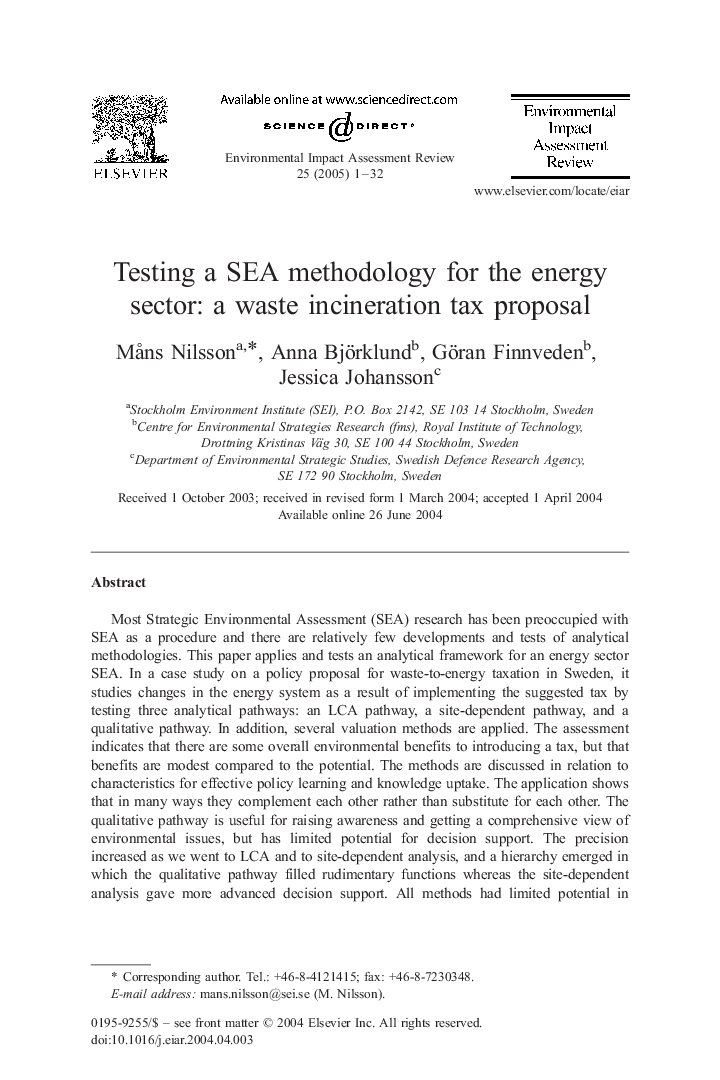| Article ID | Journal | Published Year | Pages | File Type |
|---|---|---|---|---|
| 10504388 | Environmental Impact Assessment Review | 2005 | 32 Pages |
Abstract
Most Strategic Environmental Assessment (SEA) research has been preoccupied with SEA as a procedure and there are relatively few developments and tests of analytical methodologies. This paper applies and tests an analytical framework for an energy sector SEA. In a case study on a policy proposal for waste-to-energy taxation in Sweden, it studies changes in the energy system as a result of implementing the suggested tax by testing three analytical pathways: an LCA pathway, a site-dependent pathway, and a qualitative pathway. In addition, several valuation methods are applied. The assessment indicates that there are some overall environmental benefits to introducing a tax, but that benefits are modest compared to the potential. The methods are discussed in relation to characteristics for effective policy learning and knowledge uptake. The application shows that in many ways they complement each other rather than substitute for each other. The qualitative pathway is useful for raising awareness and getting a comprehensive view of environmental issues, but has limited potential for decision support. The precision increased as we went to LCA and to site-dependent analysis, and a hierarchy emerged in which the qualitative pathway filled rudimentary functions whereas the site-dependent analysis gave more advanced decision support. All methods had limited potential in supporting a choice between alternatives unless data was aggregated through a valuation exercise.
Keywords
Related Topics
Physical Sciences and Engineering
Energy
Renewable Energy, Sustainability and the Environment
Authors
MÃ¥ns Nilsson, Anna Björklund, Göran Finnveden, Jessica Johansson,
